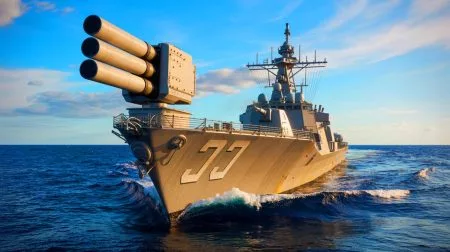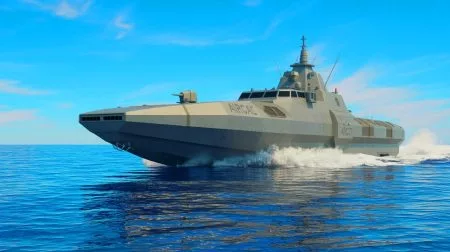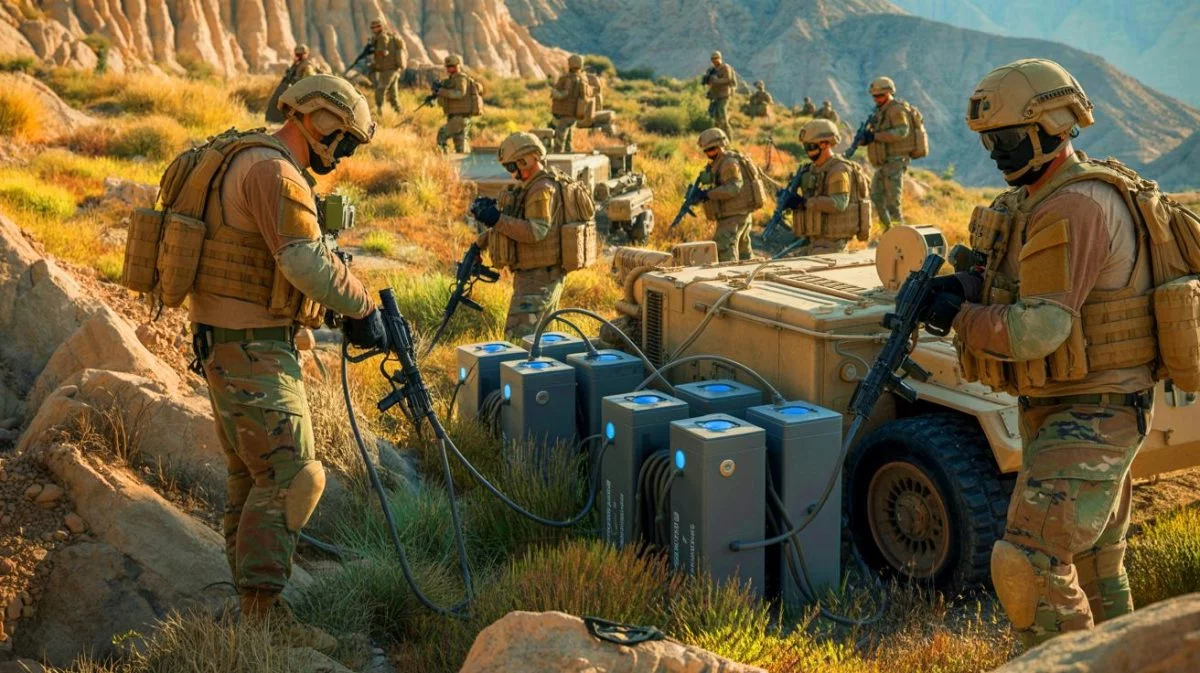| IN A NUTSHELL |
|
The U.S. Marine Corps is embracing a technological shift by integrating hydrogen fuel cells into their operations, a move that promises to reduce the physical burden on soldiers. Traditionally, Marines have relied on heavy batteries and generators to supply electricity for essential equipment. This new technology, developed by the U.S. Naval Research Laboratory (NRL), aims to lighten the load and enhance operational efficiency. The adaptation of hydrogen fuel cells, initially designed for small unmanned aerial vehicles, represents a significant advancement in military logistics and strategy. As these innovative systems are field-tested, they could reshape how military operations are conducted in challenging environments.
Revolutionizing Military Power Supply
The integration of hydrogen fuel cells into military operations marks a transformative approach to supplying power in the field. The NRL’s Hydrogen Small Unit Power (H-SUP) system is designed to replace the cumbersome batteries and generators currently used by Marines. This shift is not merely about convenience; it addresses a critical need for more efficient and sustainable power sources in combat scenarios. Soldiers today are increasingly reliant on electronic devices, from radios to drones, which require a reliable energy supply.
The H-SUP system is designed to deliver up to 1.2 kilowatts of power, offering a more energy-dense and lighter alternative to existing options. This system is not only more efficient but also quieter, reducing the heat signature and making it harder for enemies to detect. The electrochemical process used by the fuel cells, combined with a glycol-based cooling system, ensures that the units are both effective and stealthy. This innovation could lead to significant tactical advantages on the battlefield.
Field Testing and Feedback
Field tests are crucial for refining the H-SUP system and ensuring it meets the needs of the Marines. These tests have been conducted at various military sites, including Marine Corps Base Camp Lejeune and Marine Corps Air Station Yuma. Feedback from these tests is invaluable in fine-tuning the technology. Captain Joshua Ashley, a Science and Technology Analyst at the Marine Corps’ Expeditionary Energy Office, emphasized the importance of warfighter feedback in the development process.
“Warfighter feedback is a critical component of the technology development process and will be used to inform requirement definition and future research and development activities,” said Captain Joshua Ashley.
https://visegradpost.com/en/2025/08/13/death-from-above-draws-a-grin-b-2-stealth-bomber-leaves-smiley-face-of-craters-after-running-out-of-targets/
The feedback process ensures that the technology remains relevant and effective for expeditionary operations, reinforcing the Marines’ ability to operate efficiently in diverse environments.
Benefits of Hydrogen Fuel Cells
Hydrogen fuel cells offer numerous advantages over traditional power sources. Their modular construction allows for easy modification and integration into existing systems. This adaptability is crucial for the varied and unpredictable nature of military operations. The H-SUP system is also designed to be easily maintained, with a lifespan of 5,000 hours of operation, significantly reducing the logistical burden on troops.
The reduction in noise and heat signature provided by the H-SUP system enhances stealth capabilities, a vital factor in modern warfare. This technology not only supports the physical demands of soldiers but also aligns with contemporary military strategies that prioritize agility and concealment. The shift to hydrogen fuel cells could set a precedent for future advancements in military technology, promoting innovation and sustainability.
Challenges and Future Prospects
Despite the promising advantages, the implementation of hydrogen fuel cells in military operations is not without challenges. The production and storage of hydrogen remain complex issues that need to be addressed. Furthermore, the initial cost of developing and deploying these systems could be high, requiring sustained investment and research.
However, the potential benefits, including reduced logistical burdens and enhanced operational capabilities, make this a worthwhile endeavor. As the technology continues to evolve, it may pave the way for broader applications beyond military use. The successful integration of hydrogen fuel cells could inspire similar innovations in civilian sectors, contributing to a more sustainable and efficient energy landscape.
The adoption of hydrogen fuel cells by the U.S. Marine Corps represents a bold step towards modernizing military operations. As this technology continues to develop, it raises important questions about the future of military logistics and energy use. How might other branches of the military, or even civilian industries, learn from and adapt this technology for their own needs?
Did you like it? 4.4/5 (29)






Interesting move by the Marines! How will they address the hydrogen storage challenges in the field? 🤔
Great innovation! Lighter gear means quicker movement on the field. Thanks for sharing this update!
Is this tech already in use, or are they just testing it for now?
Seems like a fantastic step forward, but what about the cost? Will taxpayers foot the bill? 💵
Modern warfare just keeps evolving. This is like something out of a sci-fi movie! 🚀
Curious to see how these fuel cells perform in extreme weather conditions.
I wonder if this technology could be adapted for use in disaster relief operations around the world.
This is a smart move, but how eco-friendly are these hydrogen fuel cells really?